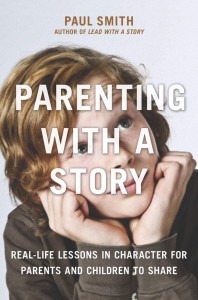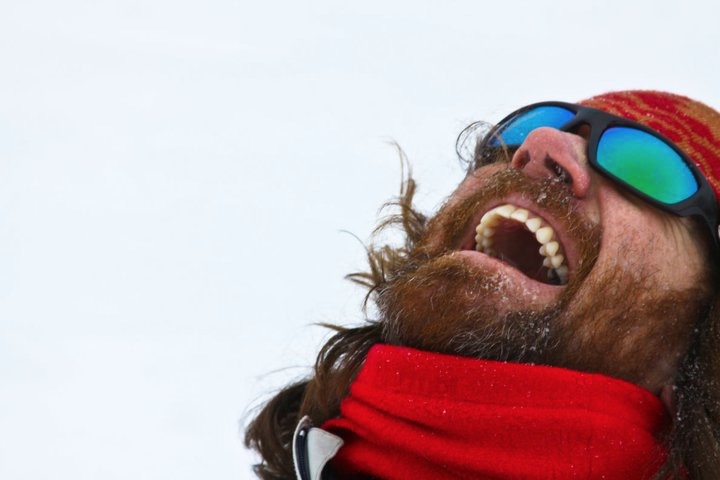 Brazilian writer Paulo Coelho once said,
Brazilian writer Paulo Coelho once said,
Everything will be okay in the end. If it isn’t okay, it isn’t the end.
It’s become one of my favorite inspirational quotes, for a number of reasons. I’m enamored with the reassuring persistence it promises when offered by someone committed to helping his or her fellow human beings. It’s as if to say, “I will not quit on you until everything is okay.” But I also love the positive attitude it engenders with the confidence that things really will turn out okay. Worry has to be one of the biggest wastes of time known to humanity. And it’s one we all spend too much of our time invested in. When you have an impending sense that something bad is going to happen, planning a corrective course of action is good. Preparing yourself mentally or physically to respond is good. But empty, stressful, unproductive worry serves no purpose.
I’ve not seen a study of this question, but I’d love to know: Of all the times human beings worry about something, what percent of the time does it turn out to be the awful, doomsday scenario we imagined it would be? My guess is that number is exceedingly small. Most of the time the worry was probably for nothing. And even when something bad does happen, my guess is that more often than not we find some way to deal with the situation in a positive, productive manner. So even if that empty worry did serve a productive purpose, my guess is that only rarely would we have needed it. A case in point is the following account of what happened in the former Soviet state of Belarus in June 1995.
John’s birthday story
John Ray was traveling by train from Belarus to Poland. At the time, one of the many hangovers from the Soviet era was that the train tracks used in Russian states were narrower than those in Western Europe. So when his train came to the border with Poland, instead of switching trains, the train switched wheels. The train pulled into a huge building where a crane lifted each car a few feet off the tracks. Station workers then uncoupled the undercarriage of the train car that held the wheel assembly. They pulled that carriage out and replaced it with a new one that fit the Western-style train tracks. All this happened while the passengers were still on the train.
While all that was going on outside the train, on the inside, one of the other hangover Soviet-era practices was transpiring. That’s when the border patrol agents did their jobs. It was customary at the time for international travelers to need a significant amount of paperwork to enter or leave a Soviet state. You needed passports, visas, documentation of how much money you entered with, the purpose of your visit, destination, proof of hotel accommodations while in the country, etc. It was quite an ordeal. But John had all that paperwork already since he had used it to get into Belarus several days earlier. Leaving should be no problem.
They arrived at the Polish border around one o’clock in the morning. John remembers hearing the knocks getting louder as they got closer to his cabin. He could hear muffled English words in a thick, Russian accent. Knock, knock, knock. “Byelorussian border patrol. Papers please.” When they were about three doors down, he started to wake up enough to find his paperwork. But he couldn’t put his hands on it right away.
Two doors down: knock, knock, knock. “Byelorussian border patrol. Papers please.” John still couldn’t find his papers. Now he was starting to sweat.
One door down: knock, knock, knock. “Byelorussian border patrol. Papers please.”
“What I was thinking then was ‘Oh, crap!’ This was still not long after the Berlin Wall came down and the Soviet Union dissolved. Everything was still very Soviet and I could imagine getting thrown in jail and forgotten.”
Now they’re at John’s cabin door: knock, knock, knock.
Byelorussian border patrol. Papers please.
John opened the door and handed them the only travel document he could find: his passport. The officer flipped it open to examine it. He looked puzzled, pointed to something on it, and said something to his partner in Russian. The other officer agreed, and the first officer turned to John and said, in his deep and very serious Russian accent, “John Ray. Come with us.”
This was definitely not good. It was like something out of a bad movie with a bad ending John wanted no part of. John quickly woke his travel partner and asked him to come with him. He thought a witness would at least provide some protection. The four men walked down the corridor to the border patrol officer’s cabin. Once inside, John and his companion were instructed to sit down. One officer sat in a chair on the other side of a desk. The other officer stood behind them, blocking the door. More bad movie endings started racing through John’s head. This cannot be good.
One officer reached under the desk, pulled out a briefcase, and placed it on the desk, opening it in a way that prevented John from seeing what was inside. He pulled out a bottle and four glasses, placing them all on the desk in front of them. Was this some strange version of Russian roulette with poison in place of a chambered bullet? John’s heart was racing.
The officer poured what appeared to be vodka into all four glasses, picked up one of them, and held it up. Then he looked John right in the eyes. “John Ray,” he said in his still very serious tones, “happy birthday.” And with that, he smiled for the first time.
John’s shoulders relaxed. He took a deep breath. He then realized that what the officer had been pointing to on his passport was his date of birth, which it had become as of approximately one hour earlier: June 10.
The four men enjoyed their drinks in celebration of another year of life for John Ray. Then the two travelers stood to leave without any further requests for their “papers.” As they walked out, John looked back at one of the officers, who offered a campy signoff by saying, “Byelorussian border patrol,” followed quickly by a cheesy grin and two thumbs up.
The Lesson
Everything was, indeed, okay in the end. It just didn’t seem that way until it really, really was the end. The next time you find yourself needlessly worrying about something that may or may not happen in the future, remember John’s story. And then relax. Odds are, what’s waiting for you in the end is nothing more threatening than a shot of Byelorussian vodka.
John and his family travel the world doing God’s work. You can learn more about them and support their efforts here.
[You can find this and over 100 other character-building stories in my book, Parenting with a Story.]
—
 Paul Smith is a one of the world’s leading experts on business storytelling. He’s a keynote speaker, storytelling coach, and bestselling author of the books Lead with a Story and Parenting with a Story.
Paul Smith is a one of the world’s leading experts on business storytelling. He’s a keynote speaker, storytelling coach, and bestselling author of the books Lead with a Story and Parenting with a Story.

 Connect with him via email here.
Connect with him via email here.
Follow him on Facebook, LinkedIn, Twitter.
Sign up for his newsletter here to get one new story a week delivered to your inbox.

